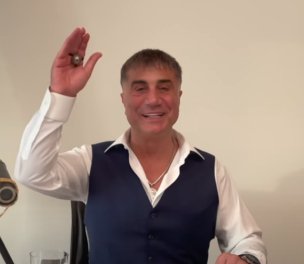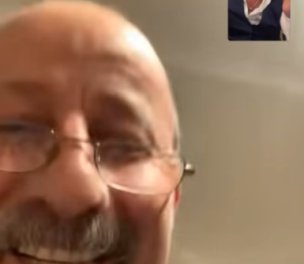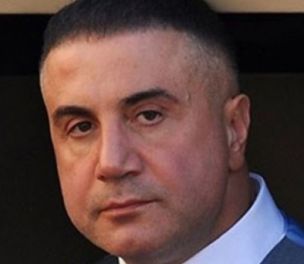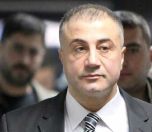Pervin and Savaş Buldan (left), Güldal and Uğur Mumcu
Click to read the article in Turkish (1) (2) (3)
In his latest YouTube video yesterday (May 23), Sedat Peker claimed that former police chief and Interior Minister Mehmet Ağar was responsible for the killings of several Kurdish businesspeople and two journalists in the 1990s.
Previously convicted of organized crime, Peker has been making claims about alleged criminal acts involving government officials, including international drug smuggling, extrajudicial killings and corruption, in his YouTube videos since early May.
Ağar has been one of the central figures in Peker's videos. He denied Peker's previous claims that he had used his influence to cover up his son's sexual assault and killing of an 18-year-old student journalist in 2019.
In yesterday's video, Peker pointed out Ağar for the killings of journalists Uğur Mumcu (1993) and Kutlu Adalı (1996), and Kurdish businesspeople Behçet Cantürk (1994) and Savaş Buldan (1994), who had been accused of drug trafficking and aiding the outlawed Kurdistan Workers' Party (PKK).
CLICK - Will Mehmet Ağar talk about 'missing guns' this time?
"How many people were gone like this? This Mehmet Ağar... His best friends when he was the security director: Behçet Cantürk, Hüseyin Baybaşin, Savaş Buldan... Everyone doing drug business was his friend," said Peker.
"They called them Kurdish businessmen. No, they were doing drug business. He received money from all of them.
"He would take care of their every issue. His dream was to enter politics and become the President in the end.
"The man made a presentation at the National Security Council (NSC) to clear up the entire history. Back then, Ms. [Tansu] Çiller convinced him. Then, he started killing all of them. He did this to clear his own past."
CLICK - Peker's brother detained after claims about assassination of journalist Adalı
About Mumcu, he said, "Uğur Mumcu... You agree with his views or not, to me, he is a martyr. Why was he killed? Look at the articles he wrote at the time when he was killed."
"Uğur Mumcu was martyred. Who came there first? The murderer comes first: Mehmet Ağar. He said to his spouse, 'If I pull a brick, the state will come down.' This is a well-known quote.
"Pull the brick, let the wall come down"
Peoples' Democratic Party (HDP) Co-Chair Pervin Buldan and Güldal Mumcu reacted to Peker's claims on Twitter.
"We have said it for years and we are saying it again. Savaş Buldan and his friends were killed by those who ruled the state. Those who committed were put on trial only for show and were acquitted," Buldan wrote. "Now we are going back to the beginning and we will take action for their trial."
Mumcu also wrote that they had been calling on anyone with knowledge of his spouse's killing to speak out. "Pull the bricks and let the wall come down, no matter who is buried under it," she wrote.
The killings
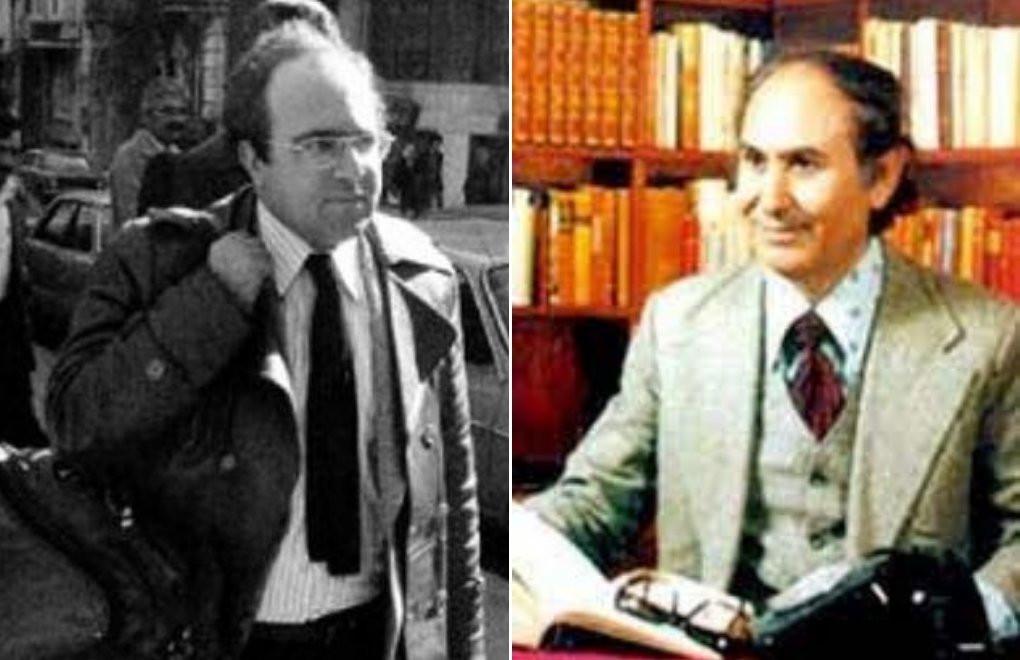 Uğur Mumcu and Kutlu Adalı
Uğur Mumcu and Kutlu Adalı
Uğur Mumcu lost his life in the explosion of a bomb placed in his car on January 24, 1993. Prior to his death, he was working exclusively on state-mafia relations.
Kutlu Adalı, a journalist from Northern Cyprus, was shot dead in front of his home on July 6, 1996, shortly after writing an article about the robbery of millions of dollars worth of icons from St. Barnabas Monastery in Famagusta, Cyprus.
The killings couldn't have been solved.
CLICK - Journalism organizations: Whoever stays silent now is a party to this crime
assa.jpg)
Savaş Buldan, Adnan Yıldırım and Hacı Karay were kidnapped from the Çınar Hotel in YeşilYurt, İstanbul by eight people wearing police vests.
Bodies of the three people were found near the Melen stream in Yığılca, Bolu on June 2, 1994. The autopsy reports showed that they were tortured, had burns on their bodies, their skins were peeled off, and they were shot in the chest and head.
In a speech in November 1993, then PM Tansu Çiller had said, "We have a list of businessmen aiding the PKK. There are about 60 names on the list. Just as the state fights the PKK, it will also fight those who provide financial support to the PKK.
"The triangle of death"
Between 1993 and 1996, several Kurdish businesspeople were assassinated in what is known as "the Sakarya-Hendek-Bolu triangle of death" in Turkey's northwestern Marmara Region.
The European Court of Human Rights ruled in 2004 that Turkey violated article 2 of the ECHR by failing to effectively investigate the killings of Buldan, Yıldırım and Karay.
Later, a case was filed against 19 former government and security officials, including Ağar. They were charged with killing people as part of the activities of an armed organization established for committing a crime."
Testifying in the case, Mehmet Eymür, a former head of the Counterterror Department of the National Intelligence Agency (MİT), had said that the decisions for the killings were made at the National Security Council (MGK) and were conveyed to the MİT.
Savaş Buldan was kidnapped and killed by MİT intelligence officer Tarık Ümit, he had said.
sa.jpg)
Behçet Cantürk was a mafia boss involved in drug and weapon smuggling. He participated in public tenders as a contractor. He was investigated for aiding the ASALA and the PKK but was acquitted.
On January 14, 1994, he and his chauffeur were kidnapped from the Fenerbahçe Officers' Club, İstanbul. Their bodies were found in Sapanca, Kocaeli the day after.
Long before Peker, in 1996, Hüseyin Baybaşin, a well-known drug trafficker who is currently serving life sentence in the Netherlands, also said Ağar had incited the killings of Kurdish businesspeople.
"Mehmet Ağar was doing drug business with us. He had Behçet Cantürk, Savaş Buldana and other Kurdish businessmen killed," he had said. "I still receive information from senior officials, one of those who gave me this information was Hüseyin Kocadağ [former İstanbul deputy director of security, killed in the 1996 Susurluk accident.]
The Susurluk accident and Mehmet Ağar
The killings of the businesspeople were also examined by a parliamentary committee established after the 1996 Susurluk traffic accident, where Kurdish businessperson Sedat Peker, former police chief Hüseyin Kocadağ, and nationalist crime group leader Abdullah Çatlı were together in a car hit by a truck.
Only Bucak survived and said he had lost his memory after the accident exposing mafia-state relations.
The report written by the Susurluk Committee says, "Although it was clear who he was and what he was doing, the state could not deal with Behçet Cantürk.
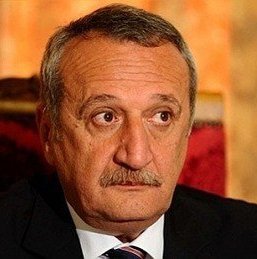
"Legal remedies were not enough and Özgür Gündem newspaper was blown up with plastic explosives and after Cantürk took action to establish a new facility [for the newspaper] instead of submitting to the state as was expected, his killing was decided by the Turkish Security Organization and the decision was executed."
Put on trial in the Susurluk case, Mehmet Ağar was sentenced to five years in prison for "establishing a criminal organization" in May 2011. His sentence was upheld by the Court of Cassation in April 2012.
After serving a year in prison, Ağar was released in April 2013, benefiting from supervised release, which was introduced as part of a judicial reform package at the time.
Overturn of acquittals
More recently, the acquittal of Ağar and 18 defendants in a case concerning the extrajudicial killings of 19 people in the 1990s was overturned by an appeals court.
There were journalists, writers and businesspeople among the killed people. All defendants apart from a fugitive one were acquitted in December 2019.
Attorneys of the defendants were notified of the verdict yesterday. The verdict of the appeals court says, "... There was only a reference to some contradictions in defendant Ayhan Çarkın's statements and the statements that complied with the material incidents were not addressed, thereby handing down a judgment on insufficient grounds." (RT/VK)




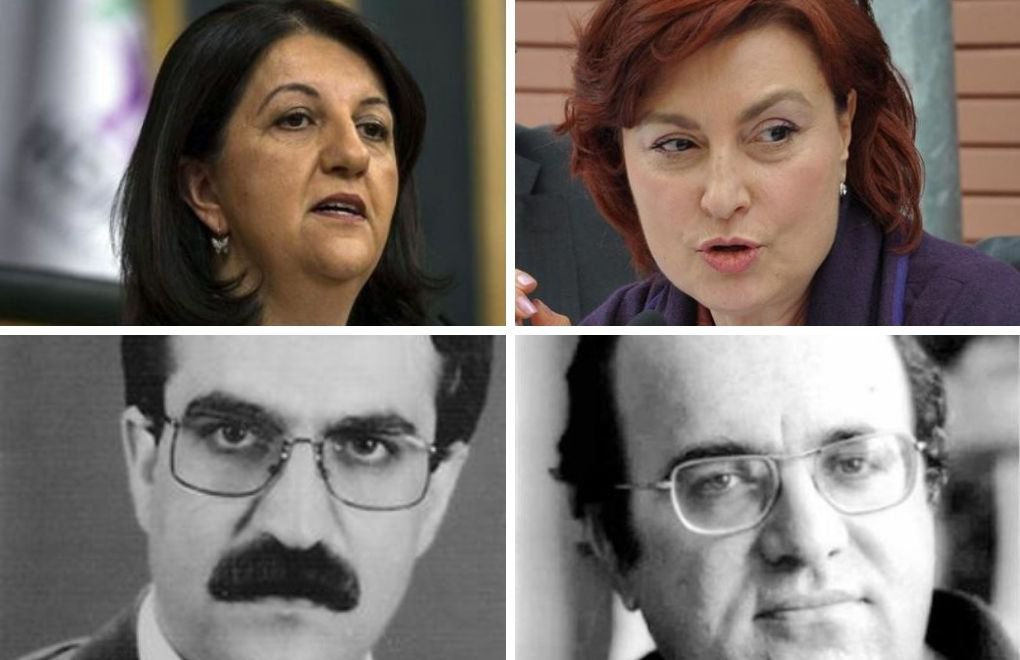


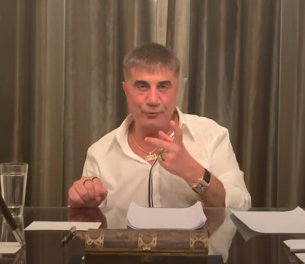

-132.jpg)

